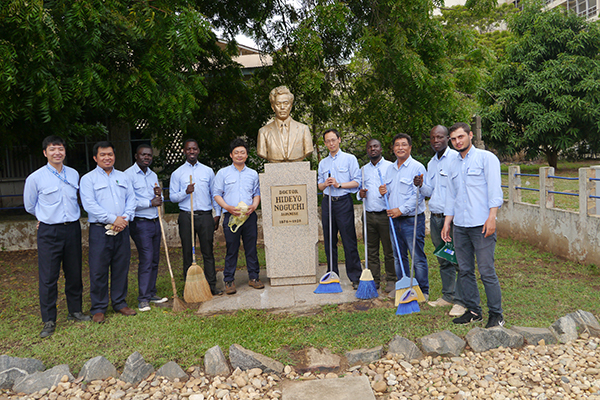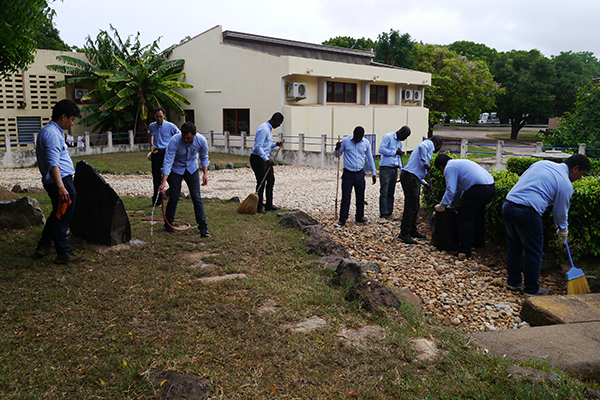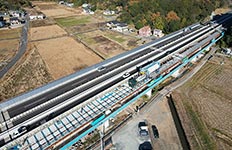Shimizu does not limit its activities to Japan. We engage in social contribution activities to solve problems in various regions around the world. Here, we introduce our main activities.
Mangrove Planting Activity
At Thai Shimizu Co., Ltd., we have held a mangrove planting activity with employees, their families, and local residents since 2009. The purpose of this activity is local forest conservation and preservation of the ecosystem.
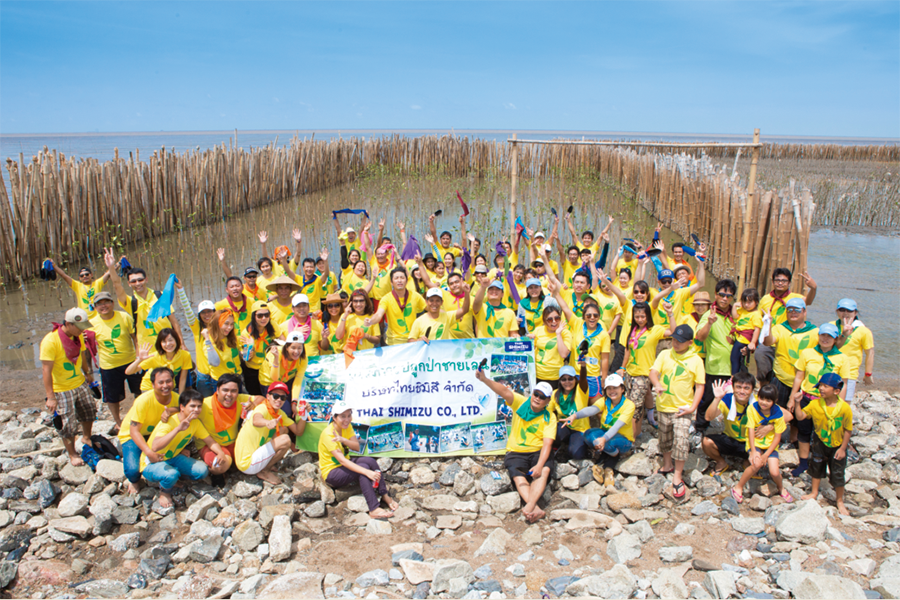
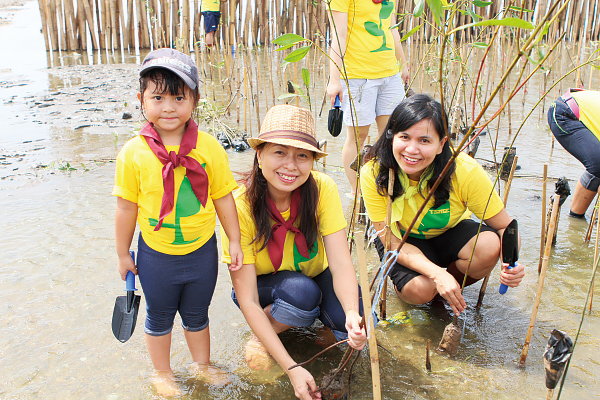
Site Tours (Vietnam)
Shimizu is building Vietnam’s first subway to provide convenient transportation in Ho Chi Minh City.
We conduct ongoing tours of the subway construction site in Ho Chi Minh, Vietnam for children who attend the local Japanese school.
The children were fascinated by the construction of Vietnam’s first subway. After viewing models of the station house and the large shield machine at the job site office, we took the children into the subway station construction site to give them a close-up look at the construction.
This was a perfect opportunity to allow Japanese children living overseas to feel pride in this construction project as a symbol of the friendship between Japan and Vietnam.
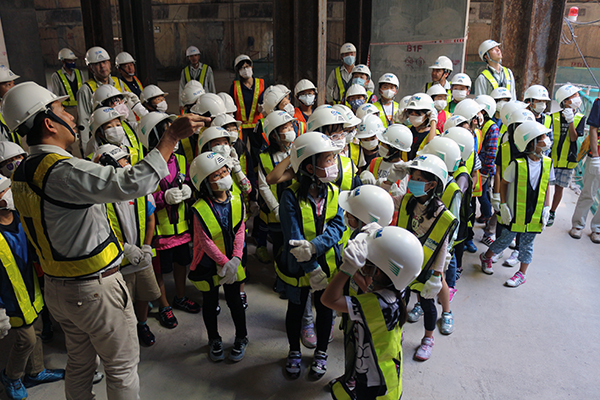
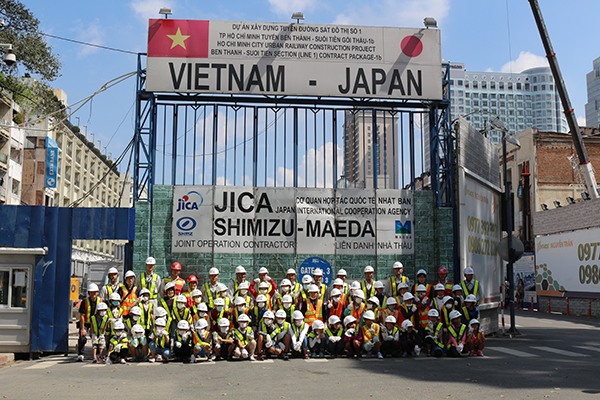
Participation in the Table for Two Program
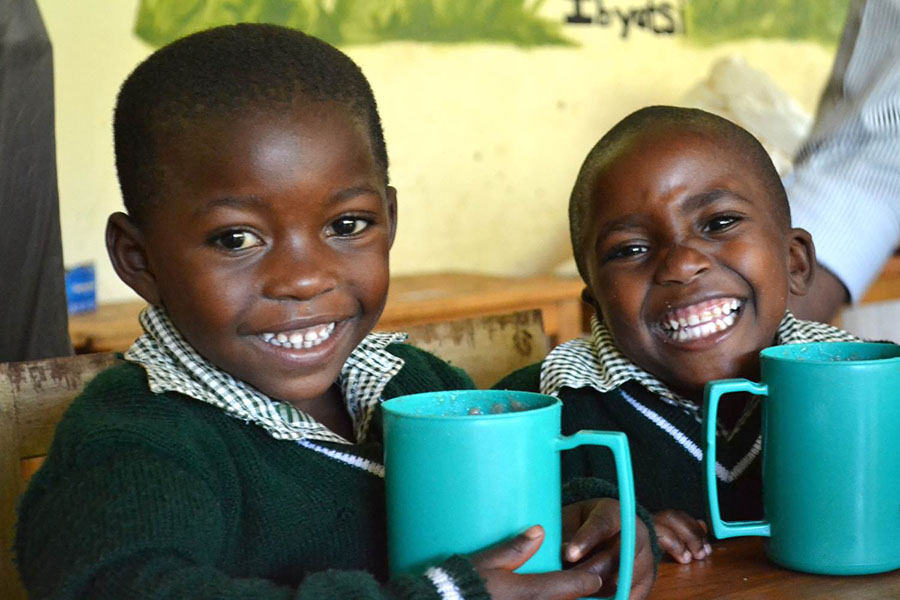
One billion of the approximately seven billion people worldwide are starving and one billion suffer from obesity and other lifestyle-related diseases. Table for Two, designated as a non-profit organization by the Tokyo Metropolitan government, was established in 2007 to rectify this serious imbalance in food. Shimizu has also participated in this effort since fiscal 2012.
Under the program, when designated food items are purchased, a donation of 20 yen per meal is made to provide school lunches to children in developing countries.
Clean-up Project at the Japanese Memorial Garden for Dr. Hideyo Noguchi in Ghana
Shimizu received an order to perform construction (The Project for the Construction of Advanced Research Center for Infectious Diseases at Noguchi Memorial Institute for Medical Research) in the Republic of Ghana in West Africa, as grant aid from the Japanese government in 2017. The original research lab of Dr. Hideyo Noguchi still exists at a separate location on the premises of the Korle Bu Hospital in Accra, the capital of Ghana, and the Japanese memorial garden provides a place for people from the community to relax. A bust and memorial stone for Dr. Noguchi have been erected in the garden, and local people still praise Dr. Noguchi’s achievements in his research on yellow fever.
Japanese staff and local staff from the project job site work together each month to sweep up fallen leaves, weed the garden, and wash Dr. Noguchi’s bust and memorial stone to preserve the memory of the accomplishments of this great man and role model and the historic landscape.
